How to Age Well, Part 2
This is the second part of a series on aging well. – Janet
It all makes sense, but sometimes we need to hear this stuff anyway. Eat right, get vaccinated, and get some sun, because Vitamin D protects your body and helps prevent cancer. This is from How to Age Well, Part 1. Part 2 is about how we all need to get off the couch, mentally as well as physically.
Jeremy Walston, M.D., a gerontologist at Johns Hopkins, co-directs the Biology of Frailty Program and is co-principal investigator of the Older American Independence Center. He has spent his career studying how we age. In addition to many studies on specific aspects of aging, he has looked at what healthy older people have in common — at what they eat and don’t eat, and how they live – and has come up with some practical tips. I recently interviewed Walston for Breakthrough, the magazine for the Johns Hopkins Center for Innovative Medicine.
Here’s more of what he had to say:
Keep Moving
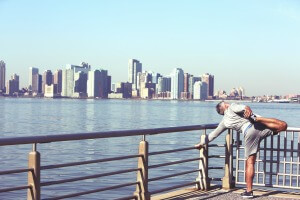 “Stay active as long as possible,” says Walston. “Don’t sit for long periods of time, especially in the late afternoon or evening. Studies show that those are low-activity times for many people, so it’s good to try to boost your activity during those times.” Go for a walk after dinner. Walking is good; in fact, you should walk a lot, or do some aerobic activity – there’s plenty to choose from.
“Stay active as long as possible,” says Walston. “Don’t sit for long periods of time, especially in the late afternoon or evening. Studies show that those are low-activity times for many people, so it’s good to try to boost your activity during those times.” Go for a walk after dinner. Walking is good; in fact, you should walk a lot, or do some aerobic activity – there’s plenty to choose from.
Just a few examples include taking a Zumba or Jazzercise class, riding a bike, swimming or doing water aerobics, hiking, jogging, or dancing. In addition to getting cardiovascular exercise, “it’s also important to do exercises that help you stay flexible, that help your balance and gait, and that help strengthen your muscles. Don’t forget your shoulders,” which are important for maintaining core body strength and higher levels of function. And if you have an “orthopedic issue,” like knee or hip trouble, address it. “It is essential to maintain your mobility as long as possible.” This may mean that you need a knee or hip replacement – but it also could be something as simple as starting to use a cane.
However, while you’re staying active:
Don’t Fall
 The body literally takes a hit when you fall. Many older people, who otherwise have been doing pretty well, take a turn for the worse after a fall. Just being laid up for a few days, or even longer, can be difficult for the elderly because they tend to lose strength quickly.
The body literally takes a hit when you fall. Many older people, who otherwise have been doing pretty well, take a turn for the worse after a fall. Just being laid up for a few days, or even longer, can be difficult for the elderly because they tend to lose strength quickly.
The best way not to fall is to be aware of the risk, and do your best to prevent it, says Walston. “Things that can make you fall include not watching your medication; vision problems; weakness in the lower extremities; and balance and gait problems.”
One huge risk factor is easy to fix: “low lighting and a cluttered living area.” Make sure your rooms are well lit – that you not only have enough lamps or ceiling lights, but that the bulbs are high-powered enough so you can see where you’re going. And go after the clutter. It doesn’t take much – maybe a stack of books or magazines that slips over, or a puzzle left by a grandchild on the floor – to make a walkway treacherous.
Sometimes, you’re so used to looking at clutter that you don’t see it. This is why Walston recommends bringing in an independent party – a friend or relative who is not used to your home, who can see potential trouble spots you haven’t noticed.
You can lower the odds of falling, as well, by working on your balance. Tai Chi is a great way to do this, and many community centers offer classes (another bonus: taking a class helps you stay connected – see below). Weights and exercises can also help your legs get stronger.
Keep your mind active, too
 “Cognitive risk factors include diabetes, elevated lipids, and high blood pressure,” says Walston. Medications can keep all of these problems in check. Even if you are currently being treated for these, it’s good to go the doctor for “tune-ups” every so often, to make sure you’re still on the right dosage.
“Cognitive risk factors include diabetes, elevated lipids, and high blood pressure,” says Walston. Medications can keep all of these problems in check. Even if you are currently being treated for these, it’s good to go the doctor for “tune-ups” every so often, to make sure you’re still on the right dosage.
But other things can affect how well you’re thinking and functioning, too, and they may not be what you’d expect:
Poor hearing: If you don’t feel connected, you may tend to withdraw from the conversation, smiling politely, not engaging, because you don’t know what people are saying. This is bad. “Get a hearing aid if you need one.” It won’t just help your hearing; it will help your brain.
Personal note: I find this especially poignant. There’s a feedback loop between our brain and the world. We need stimulation to keep our brain going. If we withdraw and isolate ourselves, we don’t get that feedback, and this hurts us mentally. If all you need to do to help stop this from happening is get a dang hearing aid, swallow your pride and go get one! Do it for your brain.
Physical inactivity: Being active affects every part of your body. It helps your heart work better, helps your lungs get more air, strengthens your muscles, and helps your brain work better. Many studies have shown that older adults who are active are less likely to get dementia and Alzheimer’s.
Depression: If you are depressed, you are going to be withdrawn, you may not eat or sleep very well, and you may not get enough exercise. All of these can affect your cognitive skills.
Addressing all of these risk factors is good “cognitive protection,” says Walston. And one of the most important ways to protect your brain is to stay active is to “interact with others more frequently.” Stay connected. Talking to people — volunteering, interacting with others in church, clubs, or other groups, being around family or friends – is good medicine.
This is the second part of a series on aging well. To read part one click here.
©Janet Farrar Worthington

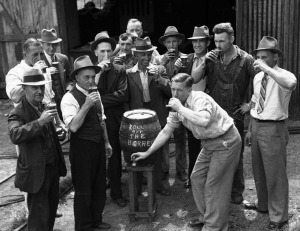


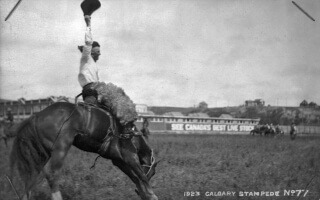
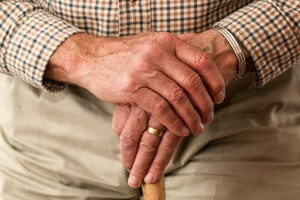

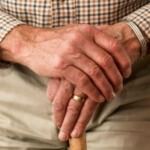
Leave a Reply
Want to join the discussion?Feel free to contribute!